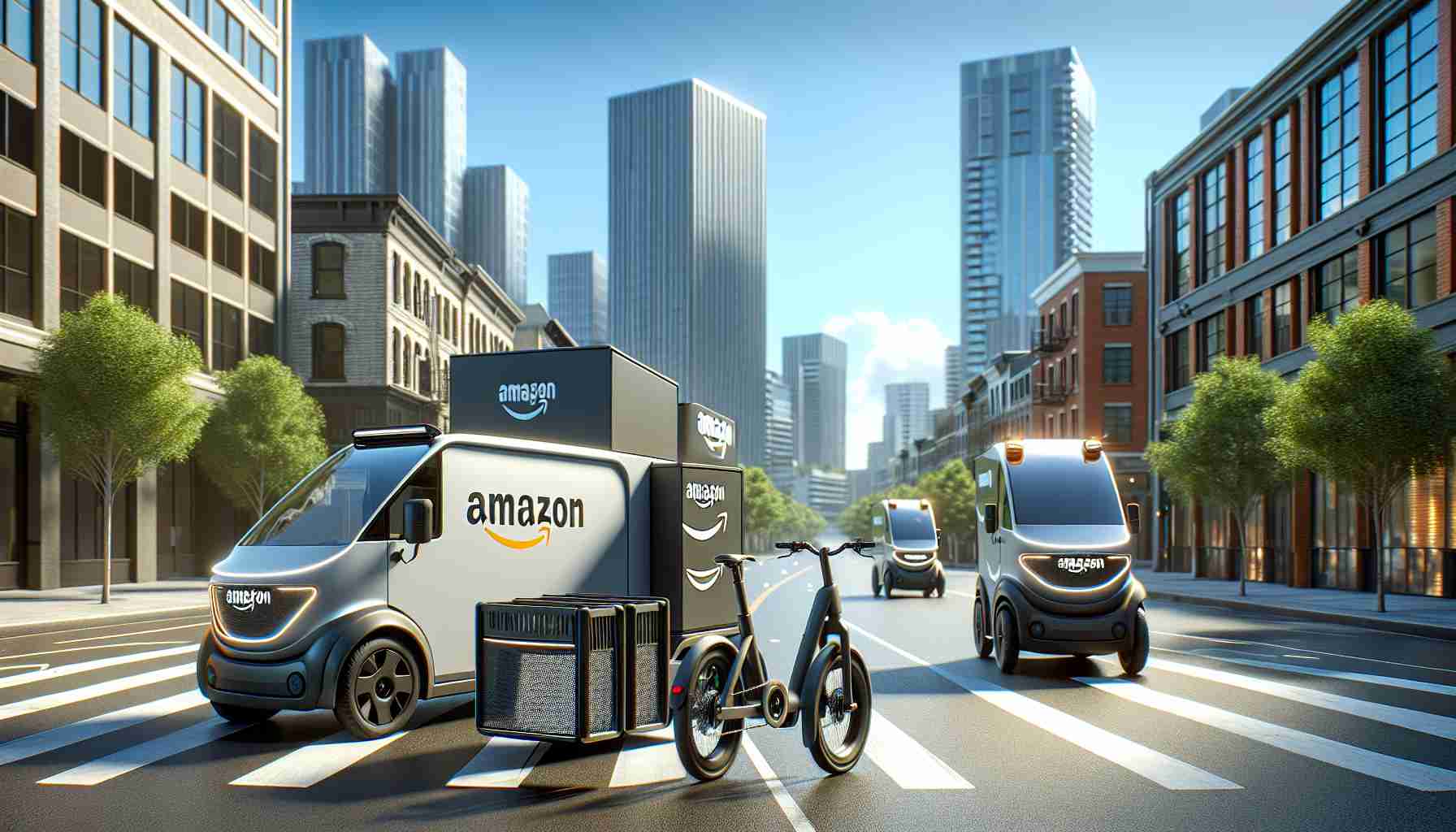Amazon is constantly seeking innovative ways to improve the delivery experience for its customers. While many of us are familiar with the iconic Amazon delivery vans, there are actually a variety of unconventional methods that are used to deliver packages around the world. One such method is the use of e-cargo bikes.
E-cargo bikes are compact and maneuverable, making them the perfect solution for delivering packages in crowded neighborhoods and dense urban areas. These bikes are not only convenient, but they also produce zero-tailpipe emissions, aligning with Amazon’s commitment to prioritize sustainability.
In fact, Amazon operates micromobility solutions like e-cargo bikes in over 40 cities across Europe. These bikes are used in cities such as Amsterdam, Vienna, Munich, and Glasgow, allowing for efficient and eco-friendly deliveries.
But e-cargo bikes are just one piece of Amazon’s larger plan to decarbonize their last-mile fleet. The company is also utilizing electric delivery vehicles and on-foot deliveries to reduce emissions and improve efficiency. By embracing lower-emission options, Amazon is taking steps towards creating a more sustainable future for package delivery.
Additionally, in Italy, Amazon has implemented micromobility hubs as part of a €1 billion investment over five years. These hubs, which include e-cargo bikes, are aimed at further electrifying Europe’s transport network and contributing to the reduction of carbon emissions.
The use of e-cargo bikes and other innovative methods exemplify Amazon’s commitment to finding creative solutions to ensure that packages reach customers, no matter where they are. Whether it’s on busy city streets or in remote locations with no formal addresses, Amazon is dedicated to delivering smiles and making the world a greener place, one package at a time.
The e-cargo bike industry is experiencing significant growth and is expected to continue expanding in the coming years. According to market forecasts, the global e-cargo bike market is projected to reach a value of $1.8 billion by 2027, with a compound annual growth rate of over 13%. This growth is fueled by the increasing demand for eco-friendly and efficient last-mile delivery solutions.
One of the key drivers of this market growth is the rising awareness and concern about environmental sustainability. Governments and organizations worldwide are implementing regulations and policies to encourage the adoption of zero-emission vehicles. E-cargo bikes are seen as an effective solution that addresses the need for clean urban logistics and reducing carbon footprints.
The market for e-cargo bikes is not limited to the delivery sector alone. They are also being used by businesses for various purposes, such as food delivery, postal services, and even mobile retail. The versatility of e-cargo bikes makes them attractive for a wide range of applications, further contributing to market growth.
However, there are a few challenges faced by the e-cargo bike industry. One significant issue is the lack of dedicated infrastructure to support e-cargo bike operations. This includes parking facilities, charging stations, and designated bike lanes. Governments and municipalities are now starting to address these challenges by investing in the development of infrastructure tailored for e-cargo bikes.
Another challenge is the limited range and load capacity of e-cargo bikes. While they are ideal for short-distance deliveries in urban areas, they may not be suitable for longer routes or heavier packages. Manufacturers and innovators are continually working towards improving battery technology, increasing the range, and enhancing the load capacity of e-cargo bikes.
In conclusion, the e-cargo bike industry is poised for significant growth as companies like Amazon continue to invest in sustainable last-mile delivery solutions. The market forecasts indicate a promising future for e-cargo bikes, driven by increasing environmental awareness and the need for efficient urban logistics. While there are challenges to overcome, the industry is actively working towards addressing them and creating a greener and more efficient delivery ecosystem.
Related link: Bike Biz













